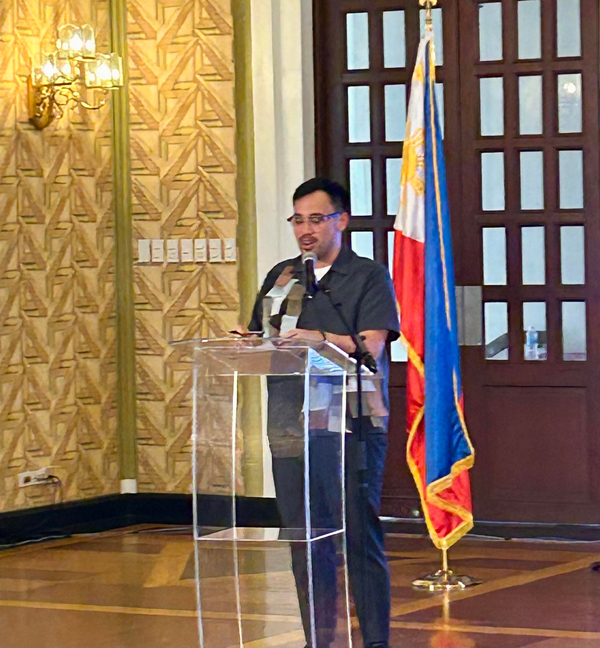 In February of every year, the celebration of National Arts Month commences. During the merry month of May, National Heritage Month comes about. And every October, the National Indigenous Peoples Month takes place.
In February of every year, the celebration of National Arts Month commences. During the merry month of May, National Heritage Month comes about. And every October, the National Indigenous Peoples Month takes place.
Now, this September is another month of celebration for the first Philippine Creative Industries. By virtue of Republic Act No. 11904, also known as the “Philippine Creative Industries Development Act,” signed in 2022, mandates the further prosperity of Philippine creative industries by protecting and strengthening the rights and capacities of creative firms, artists, artisans, creators, workers, indigenous cultural communities, content providers, and stakeholders in the creative industries.
Creative industries are classified into nine domains: Audiovisual Media, Digital Interactive Media, Creative Services, Design, Publishing and Printed Media, Performing Arts, Visual Arts, Traditional Cultural Expressions, and Cultural Sites. The law provides supplementary support to the specified domains that face numerous limitations that prevent their supplemental growth.
This year’s theme is Celebrating Filipino Creativity, Advancing Creative Philippines. The National Commission for Culture and the Arts (NCCA), in partnership with the Department of Trade and Industry (DTI) celebrates the first Philippine Creative Industries Month 2023.

and Philippine Creative Industries Month champion Christopher de Venecia
The official launch of the event will be held at the Rizal Park Open Air Auditorium, Manila from 2:00 p.m. until 9:00 p.m. on September 17.
What to expect from the celebration are simultaneous workshops and a concert with the support of National Parks Development Committee and Concert @ the Park.
The workshops will tackle different topics for each specific domain such as: Learning Filipino through Wikaharian by Knowledge Channel Foundation Inc. for the audiovisual media domain; How to start your own blockchain game project? by Dr. Albert Mulles of METATOKYO and Learning Through Minecraft Exhibit by Department of Science and Technology (DOST) for digital interactive media domain; Events Management Workshop for creative services domain; Shoemaking Workshop, Parol Making Workshop, Jewelry Making Workshop, and T-shirt Printing Workshop for design domain; and Basic Comics Workshop by Rustico Limosinero and Book Selling and Exhibit by Barasoain Kalinangan Foundation Inc. for publishing and printed media domain.
Also included are: Song Writing Workshop by Joey Ayala, Theater Acting Workshop by Nanding Josef, Dance Workshop, Puppetry Workshop by the Samahan ng mga Papetir ng Pilipinas for Performing Arts Domain; Pottery Workshop by the OdangPutikPottery, Painting Workshop by the Egai Fernandez, Basic Photography Workshop by the Federation of Philippine Photographers Foundation for visual arts domain; Baybayin Workshop, Pabalat Making, Ilocos Empanada Making, and Traditional Weaving Demo for Traditional Cultural Expression Domain; and NCCA Papercraft Series and Exhibit for cultural sites domain.
The featured artists in the Live Concert are Bayang Barrios, Colot it Red, Halili Cruz Dance Company, J Crisis, Joey Ayala, Johnoy Danao, Kammerchor Manila, Sarah Straschko, National Ballroom Ensemble, Ramon Obusan Folkloric Group, Sindaw Philippines, Teatro ni Juan, and The Nightingales.
The celebration will include Perya ng Sining and Bukal ng Galing events in Iloilo and Bacolod, culminating in a September 29 Summit. This Summit provides a platform for government officials, industry leaders, professionals, and students to exchange ideas and foster a vibrant creative community, addressing key themes like Creative Economy, Disruption, Design, Governance, and Spaces.
After all the workshops, performances, and summit inputs have been completed and submitted, what comes next? Will the Creative Industries Law benefit heavily taxed Philippine motion picture and television industries? Will it reduce ticket prices for movies and theater performances? Will it assist in promoting local products to attract audiences? Will it encourage large corporations to financially support local films and theater productions rather than just engaging in exchange deals?
Can this law limit the number of foreign acts performed in Manila concerts? Can it influence radio stations to play more original Filipino songs and reduce airtime for foreign songs?
These activities, held annually during National Arts, Heritage, and Indigenous Peoples Month, are no longer new. They have become commonplace. So, what happens next?




